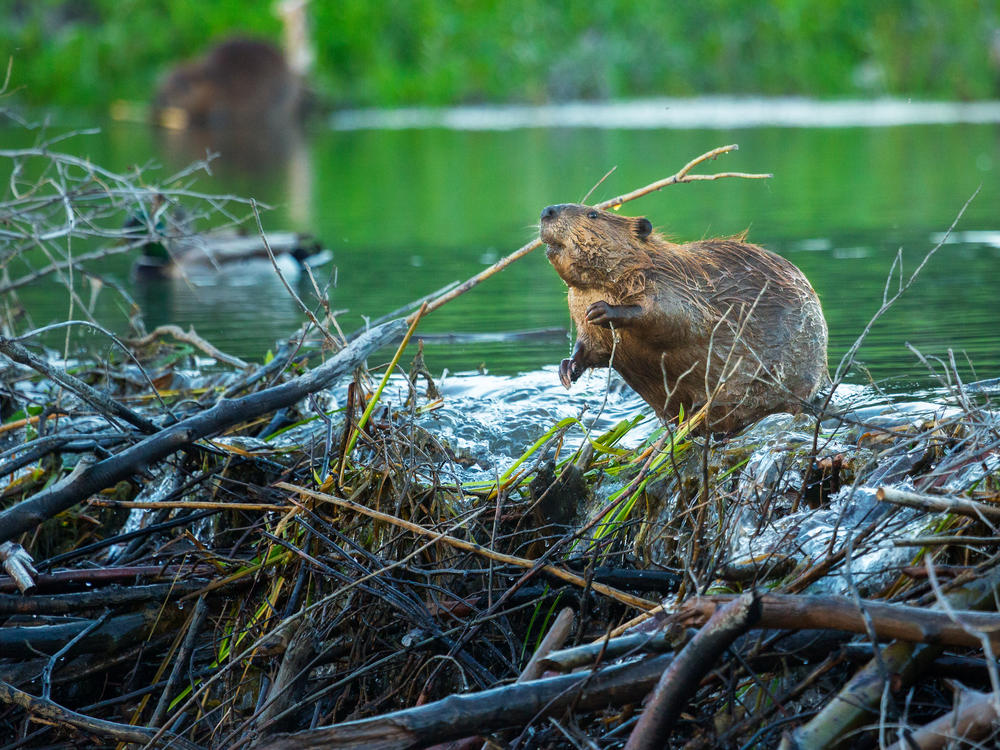Section Branding
Header Content
Beavers can help with climate change. So how do we get along?
Primary Content
NPR's Tom Dreisbach is back in the host chair for a day. This time, he reports on a story very close to home: The years-long battle his parents have been locked in with the local wild beaver population. Each night, the beavers would dam the culverts along the Dreisbachs' property, threatening to make their home inaccessible. And each morning, Tom's parents deconstructed those dams — until the annual winter freeze hit and left them all in a temporary stalemate.
As beaver populations have increased, so have these kinds of conflicts with people like Tom's parents.
But the solution may not be to chase away the beavers. They're a keystone species that engineer their local ecosystems. Scientists believe that beavers could play an important role in cleaning water supplies, creating healthy ecosystems and mitigating a lot of the effects of climate change. So, Tom calls up Jakob Shockey, the executive director of the non-profit Project Beaver. Jakob offers a bit of perspective to Tom and his parents, and the Dreisbachs contemplate what a peaceful coexistence with these furry neighbors might look like.
Have questions or comments for us to consider for a future episode? Email us at shortwave@npr.org — we'd love to hear from you!
Listen to Short Wave on Spotify, Apple Podcasts and Google Podcasts.
Listen to every episode of Short Wave sponsor-free and support our work at NPR by signing up for Short Wave+ at plus.npr.org/shortwave.
This episode was produced by Rachel Carlson and Berly McCoy. It was edited by our showrunner Rebecca Ramirez, who also checked the facts. The audio engineer was Josh Newell.

